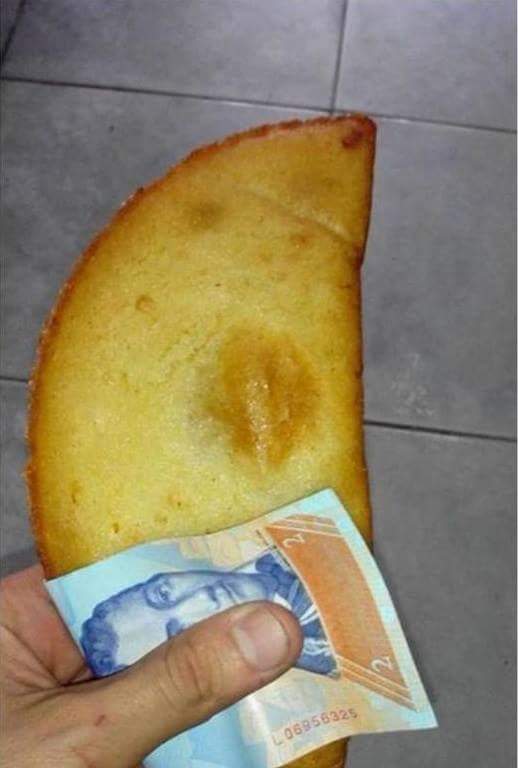The Venezuelan bolivar is essentially worthless. With oil prices exponentially falling and the national economy in chaos, the bolivar is better equipped to be used as toilet paper, a scarce product across the country, or, as this one photo suggests, a napkin.
Earlier this week, one Reddit user – Victorinox126 – uploaded a photo of him using a two-bolivar note rather than a napkin to hold an empanada.
Napkins along with cooking oil, butter, toilet paper, milk and flour are very hard to find. Due to price controls, profit ceilings and production quotas, Venezuelans have to resort to mob mentality to just receive a bag of corn starch (SEE: Venezuela’s socialism leads to food riots (video)). Hotels have even requested tourists to bring their own toilet papers and napkins.
But the bolivar is another major issue. Many Venezuelans have had to use the black market to get their hands on United States dollars because of currency controls. President Nicolas Maduro recently permitted citizens to purchase up to $300 per day, but $200 of that must be held in cash.
The unofficial exchange rate has skyrocketed by more than 700 percent over the past year. $1 is worth 676 bolivars – the bolivar isn’t even worth a penny. In 2014, inflation hit 68 percent, and many economists believe inflation in the Latin American country could hit triple digits.
The Venezuelan government has two additional big problems: first, Venezuela has a $5 billion debt payment scheduled for October, which many say the government will default.
“Both the government’s willingness and ability to service its foreign currency debt is in serious question,” Capital Economics said in a note last year. “Given that the government has nothing in the way of savings from the oil price boom of the past decade, the loss of oil revenues will wipe out whatever foreign currency that the government has. With the bolivar collapsing in the black market, capital flight is only likely to increase putting even more pressure on the supply of hard currency.
Second, Maduro is persisting with the government’s very generous welfare program. Not to mention Maduro has raised the minimum wage (SEE: Huh? Venezuela raises minimum wage by 30% but businesses can’t raise prices).

Ha, thats nuthin.
In Indonesia, $1 = 13800 Rupiah.
I wouldnt let a Rupiah touch my food. It devalues it.